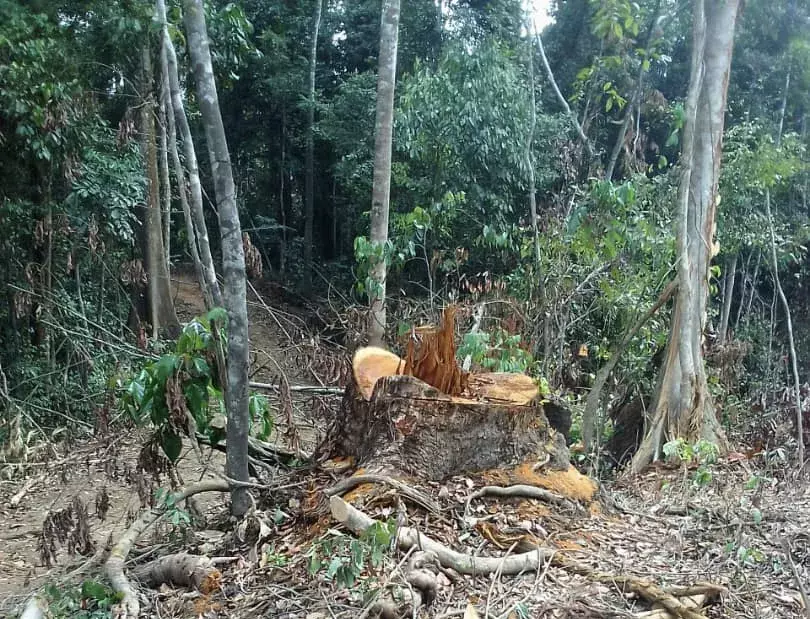Cross River community laments illegal timber exploitation
...if nothing urgent is done by the Cross River Government, the international community and the public, the remaining 40 per cent of the Ekuri community forest would be wiped away in two years.;

Members of forest community in Akamkpa local government area of Cross River have called on the state government to check the high level of timber exploitation alleged to be carried out by one Ezemac International Nigeria Limited.
Mr Edwin Ogar, Programme Coordinator of Worthy Association for Tackling Environmental Ruins (WATER), raised the concerns of the community in a statement issued on Tuesday in Calabar.
Ogar, who has the power of attorney from the Ekuri community to conserve and manage the community forest for the livelihood and improvement of Ekuri villagers, said “the situation is very bad.”
He lamented that if nothing urgent is done by the Cross River Government, the international community and the public, the remaining 40 per cent of the Ekuri community forest would be wiped away in two years.
According to him, so far, 60 per cent of Nigeria’s flagship Ekuri community forest project in Akamkpa Local Government Area of Cross River is gone.
He explained that WATER is a Non-Governmental Organization that is into conservation, sustainable forest management, climate change and working particularly with Ekuri community in the conservation of Ekuri forest.
“Ekuri forest, as we all know, has a very good history of conservation over the years, making it the best communally managed forest in the whole of West Africa, which attracted international recognition by United Nation Development Programme in 2004.
“Ekuri forest was recognized as biodiversity hotspot as well as the community using the Ekuri forest to ensure that poverty is reduced and the forest is managed properly.
“Ekuri forest is also a flagship community forestry project in Nigeria recognised by government and visited by several organisations and communities both in and outside Africa.
“Ekuri forest used to be a learning centre of excellence for other communities and as a result, the government has recognised Ekuri and replicated it in other communities in Cross River and Taraba States.
“The forest that has been acclaimed the best communally managed forest in West Africa is now the envy of loggers,” he said.
He said that currently, there was a ban on logging, instituted by the Cross River Government in 2008, adding that trees were not supposed to be cut for timber.
“Ezemac International Nigeria Limited is carrying out logging activities without permission; the company and over 100 individual illegal loggers have ravaged new and old Ekuri forests.
“The essence of this statement is to tell the world that the company is still logging and the world is not saying anything but leaving it to Ekuri alone to battle it out.
“The loggers will soon finish the logging of Ekuri forest and that will not be for the interest of Nigerians because the forest is playing a very vital role in terms of climate change mitigation, providing livelihood for men, providing medicinal plants as well as regulating the climate.
“Ekuri is a minority community that can do little or nothing to stop them because the financial and technical capacity, in terms of raising resources to sustain such a matter, is not there,” he said.
In his reaction, Mr Ezenwa Igwe, the Chief Executive Officer of Ezemac International Nigeria limited, said his men entered part of Ekuri forest unknowingly.
“The state government and the State Forestry Commission are aware of my activities in the forest and I paid money to the state before entering the forest. I also have an agreement with the village people.”
When contacted, Mr Tony Undiandeye, Chairman, Cross River Forestry Commission, said his commission was equally alarmed and embarrassed by the rate of illegal logging in the forest.
“There is nothing we can do now. The ban on logging has not been lifted. We have the capacity to contend with the ban but we are helpless.
“To worsen matters, we are not funded. I have proposed to government many times on the need to lift the ban and increase the attention of the communities,” he said.

